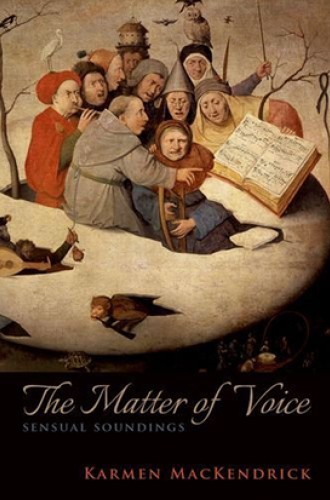I’m deeply ambivalent about my speaking voice. On the one hand, my voice is a small miracle. Vocalizing requires an incredibly broad range of activities, including muscles, nerves, and the brain. It requires all of the senses, even touch. Indeed, lacking touch, a voice cannot form recognizable sounds particularly well (something those of us who have experienced a shot of Novocain at the dentist can recall).
On the other hand, I wish my voice sounded more like the rich baritone of Morgan Freeman’s, and not so much like the nasal, middle-register voice that I have—a voice I suspect is more effective at communicating with furry creatures than with my fellow humans.
This ambivalence is not mine alone. It is a theme that in part undergirds Karmen MacKendrick’s book. She meditates on the sensuality of the human voice, both spoken and written. The voice is largely ignored in philosophical thought, shoved aside in the search for objectivity; MacKendrick plays with the idea that the “voice is what resists the reduction of word to concept.” The human voice is reducible neither to mere body nor to mere thought; rather, it fully participates in the act of making meaning. A voice is one’s own, but not identical with the self (hence the foreignness of hearing a recording of one’s voice). It is a physical, bodily trait, but it requires mental and spiritual capabilities. In its most basic form, a voice erupts outward, affecting others, calling forth a response. It both calls and responds, both speaks and listens, always a partner in searching for God.






